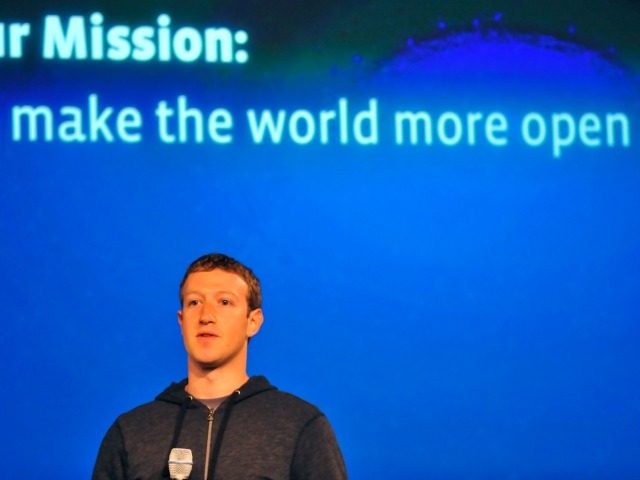Well, I did warn you not to trust them. A string of exposes in Gizmodo have exposed Facebook’s repeated assurances of political neutrality to be just that — empty assurances.
In reality, the company regularly interferes in its own algorithms to suppress conservative news, while amplifying progressive causes like Black Lives Matter.
We’ve come a long way from the misty-eyed ideals that circulated in the tech world during the early days of social media, in the late noughts and early 2010s. That was the golden age of Silicon Valley utopianism, when tech promised to topple governments, revolutionize industries, and put old media elites out of jobs.
The age of the great gatekeepers of information — Fox News, MSNBC, CNN — was over. You could start a revolution from your blog, your Facebook page, your Twitter account. As Reddit co-founder Alexis Ohanian smugly announced to a TED talk in 2010, “You’ve Lost Control, and That’s OK!”
The old media elites certainly did lose control. The web is unquestionably the communication platform of the future. But who did the old media elites lose their control to? The people, riding the democratizing wave of the internet?
That might have initially been the case, in the days of Occupy Wall Street, Wikileaks, and the Arab Spring. But today, it’s pretty clear that the internet is a baron’s revolution, not a peasant’s revolution. Old media kingpins like Murdoch are simply being replaced by new media elites like Zuckerberg and Dorsey. And the new boss is very much the same as the old boss.
The change from social media as a democratic, people-powered tool of free-flowing information to another top-down system in which elites feed pre-approved information to the masses happened gradually. Destroying the dream of liberated information in one fell swoop would have created too much uproar. Instead, Facebook decided to poison it slowly.
First, users’ control over what they saw on the platform was quietly taken away. In the old, democratic Facebook, users saw posts from their friends chronologically and could sort their friends into different categories to provide different flows of information: friends, family, co-workers, and so forth.
In other words, users were originally able to control what they saw on Facebook. Today, the picture has changed considerably. Facebook largely controls what its users see. Instead of seeing posts from their friends in chronological order, its now placed in front of users according to opaque algorithms.
Sure, users still have to add friends and follow accounts before they see anything on their feeds. And, of course, they can block out information sources they don’t like. They still have some control. But there’s no telling what criteria Facebook uses to determine what’s relevant to their users.
Then there’s Facebook’s “trending news” feature, which we’ve heard all about this week. Modelled on Twitter’s trending hashtags, the feature is ostensibly designed to pull together the most popular news stories on Facebook, presenting them in a list to its users.
In practice, as we saw this week, Facebook’s list of trending topics is curated by a news team that is every bit as biased as MSNBC or CNN. Sources inside the curation team say that links to conservative sites like Breitbart, The Blaze, and The Washington Examiner are “regularly suppressed,” while stories about pet progressive causes like Black Lives Matter are artificially inserted into the rankings despite lacking the required popularity to make the cut.
Gizmodo, the outlet that broke the story, was blunt in its assessment. The once-revolutionary CEOs of social media have morphed into carbon-copies of the very old media barons they were supposed to “disrupt.”
In other words, Facebook’s news section operates like a traditional newsroom, reflecting the biases of its workers and the institutional imperatives of the corporation.
So, after all the fears that traditional newsrooms would disappear due to the disruptive power of the web, we’re now left with …. a traditional newsroom. Really, was it all worth it?
Of course, it’s the little differences that count. The CEOs who preside over Facebook and Twitter aren’t quite like Rupert Murdoch, after all. They’re the product of zealous millennial progressivism, coupled with a strong dose of San Francisco identity politics and wrapped in the kind of insulation from the affairs of ordinary citizens that only vast wealth can provide. They’re plutocrats — hyper-progressive ones.
And they control what more a billion of of us are going to read on the internet.
You can follow Allum Bokhari on Twitter, add him on Facebook, and download Milo Alert! for Android to be kept up to date on his latest articles.

COMMENTS
Please let us know if you're having issues with commenting.